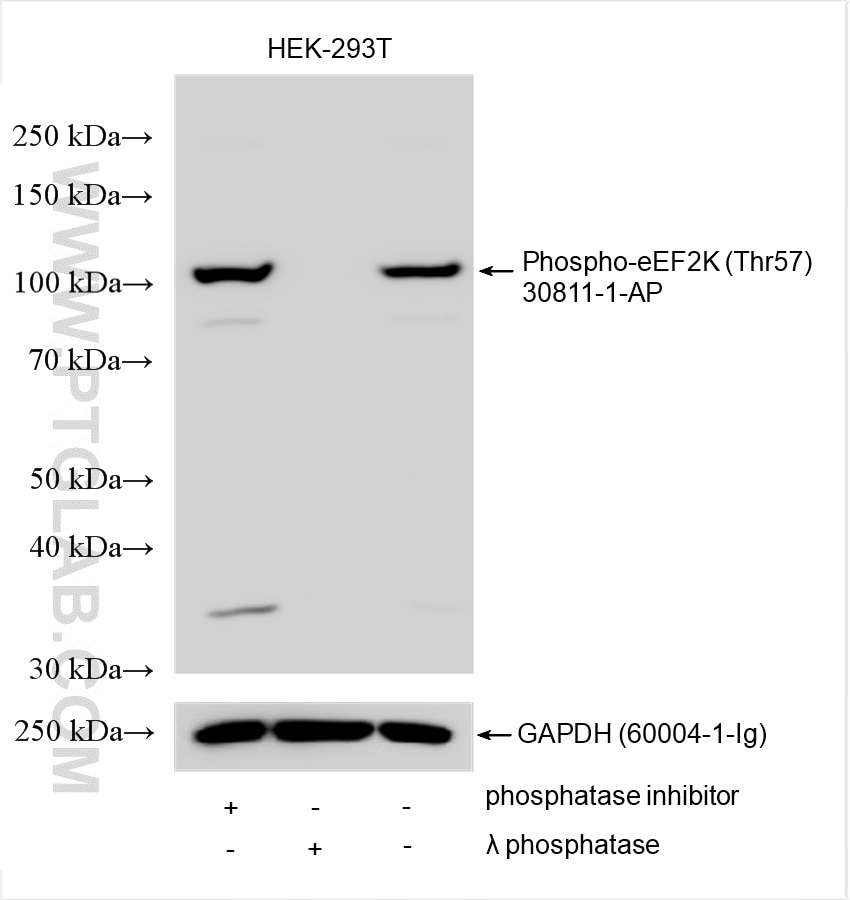Tested Applications
| Positive WB detected in | HEK-293 cells, NIH/3T3 cells, λ phosphatase treated HEK-293 cells |
Recommended dilution
| Application | Dilution |
|---|---|
| Western Blot (WB) | WB : 1:500-1:2000 |
| It is recommended that this reagent should be titrated in each testing system to obtain optimal results. | |
| Sample-dependent, Check data in validation data gallery. | |
Product Information
30811-1-AP targets Phospho-eEF2K (Thr57) in WB, ELISA applications and shows reactivity with Human, mouse samples.
| Tested Reactivity | Human, mouse |
| Host / Isotype | Rabbit / IgG |
| Class | Polyclonal |
| Type | Antibody |
| Immunogen | Peptide Predict reactive species |
| Full Name | eukaryotic elongation factor-2 kinase |
| Calculated Molecular Weight | 725 aa, 100 kDa |
| Observed Molecular Weight | 100 kDa |
| GenBank Accession Number | BC032665 |
| Gene Symbol | EEF2K |
| Gene ID (NCBI) | 29904 |
| RRID | AB_3669761 |
| Conjugate | Unconjugated |
| Form | Liquid |
| Purification Method | Antigen affinity purification |
| UNIPROT ID | O00418 |
| Storage Buffer | PBS with 0.02% sodium azide and 50% glycerol , pH 7.3 |
| Storage Conditions | Store at -20°C. Stable for one year after shipment. Aliquoting is unnecessary for -20oC storage. 20ul sizes contain 0.1% BSA. |
Background Information
Eukaryotic elongation factor‐2 kinase (eEF2K), well‐known to be a Ca2+ calmodulin (CaM)‐dependent kinase, is overexpressed in several types of malignancies, most notably Triple negative breast cancer (TNBC). Increasing evidence indicates that eEF2K may modulate the expression of some apoptotic proteins such as XIAP, c‐FLIPL, Bcl‐XL, PI3KCI and p70S6K to inhibit apoptotic process in cancer. On the other hand, it may regulate autophagy involved in AMPK, mTORC1 and ULK1, thereby promoting cancer cell survival. (PMID: 29094413)
Protocols
| Product Specific Protocols | |
|---|---|
| WB protocol for Phospho-eEF2K (Thr57) antibody 30811-1-AP | Download protocol |
| Standard Protocols | |
|---|---|
| Click here to view our Standard Protocols |





